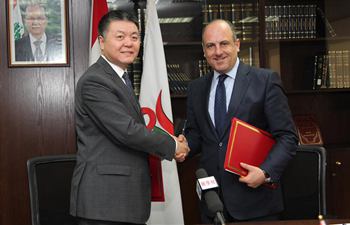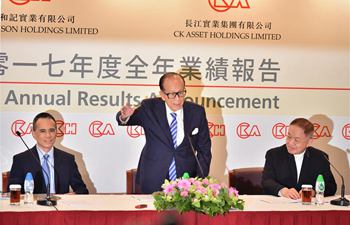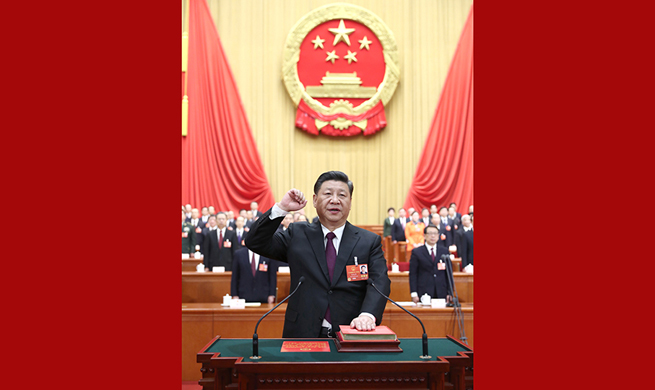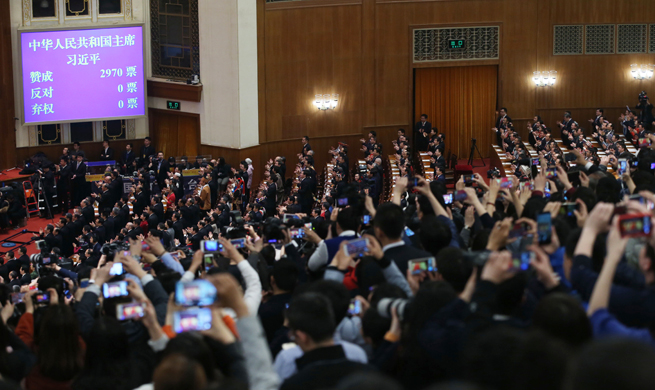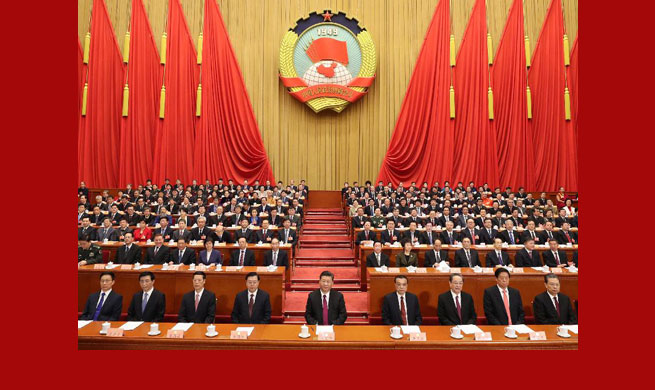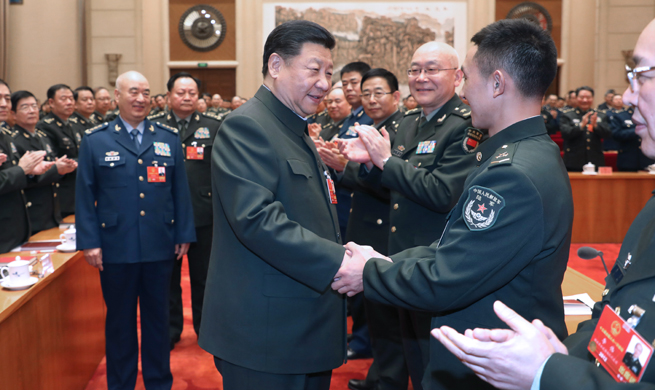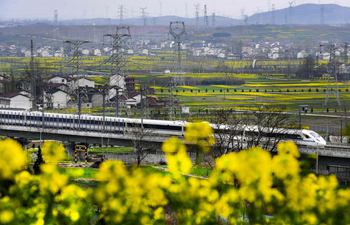MEXICO CITY, March 16 (Xinhua) -- Countries in Latin America this week have expressed deep concern about U.S. President Donald Trump's decision to impose tariffs on steel and aluminum imports while seeking exemption ahead of the negotiation deadline on March 23.
Trump on March 8 announced his decision to impose a 25-percent tariff on imported steel and a 10-percent tariff on aluminum, triggering the criticism and outrage among its trading partners around the world.
However, the U.S. government declared to exempt Canada and Mexico and offered the possibility of excluding other allies, backtracking from an earlier "no-exceptions" stance.
CRITICISM AGAINST TARIFFS
Brazil is the second-largest steel exporter and the leading supplier of semi-finished steel of the United States. Brazil said Wednesday it was seeking to speak with American authorities to avoid the tariffs.
In 2017, Brazilian industry sold 2.6 billion U.S. dollars worth of steel to the United States, or 4.7 million tons of the metal, according to official figures.
Brazilian President Michel Temer said at the opening of the World Economic Forum for Latin America in Sao Paulo that his country "should address this topic very cautiously."
Temer said that his government is trying to get the decision reversed from two perspectives. First, Brazilian companies will pressure the U.S. Congress to impede the decision. Second, Brazil will make an appeal to the World Trade Organization (WTO) if it doesn't achieve a "friendly" solution through negotiations, together with other countries that face losses.
Brazil's Foreign Affairs Minister Aloysio Nunes said he has already requested a meeting with U.S. Commerce Secretary Wilbur Ross to discuss exemptions for most Brazilian exports.
"Protectionism is a regression. We are going to defend ourselves in keeping with the rules of international trade," said Nunes.
In Argentina, experts told Xinhua the tariffs are about to affect at least 10 countries and Argentina would suffer heavy losses as a rising exporter of steel and aluminum.
Washington's move is bound to lead to a fall in jobs and income, as well as a lower demand for inputs and machinery for the two industries that carry significant weight, said Mariano Feliz, a member of the Critical Economy Society of Argentina and Uruguay.
"All of the world's producers will be looking to unload in other markets what they cannot sell in the United States, pushing prices and profits downward, and invading markets such as Argentina's," Feliz said. "To the loss of Argentine exports to the United States, you have to add the impact of the rise in global competition in these fields."
Argentina's Steel Chamber has expressed its dismay at the U.S. measure and is working with the government to find a way for Argentina to get exemption.
ADVERSE IMPACT
WTO Director-General Roberto Azevedo on Monday warned of the potential "domino effect" of the U.S. tariffs on steel and aluminum.
"Once you enter the path of reciprocal reprisals, you know when it begins, you know how it begins, but you don't know how or when you will be able to stop the process," Azevedo told reporters in Brazil.
"Unilateral" announcements like those made by Trump tend to spark countermeasures, said Azevedo.
Earlier, the WTO head called on members to avoid triggering an escalation of global trade barriers, urging them to reflect on the matter.
The U.S.-triggered wave of protectionism put countries' "conventional knowledge" of their partners in doubt, said Jose Angel Gurria, secretary-general of the Organization for Economic Cooperation and Development (OECD).
Gurria said at the OECD forum in Mexico on Monday that countries become more vulnerable when their trading partners hold different convictions.
"The problem today is that the growing wave of protectionism, populism and nationalism ... put in doubt this conventional knowledge," said the OECD head.
Economists said it is difficult for the United States to listen to other countries, even if the pressure comes from the European Union or the the Group of 20 (G20).
As G20 finance ministers and central bank governors prepare to meet in Buenos Aires next week, Christine Lagarde, managing director of the International Monetary Fund, urged global policymakers to guard against trade protectionism.
"They should ensure that ... the tariffs do not lead to a wider escalation of protectionist measures," she said, adding that trade wars will hurt global growth and are also "unwinnable."








